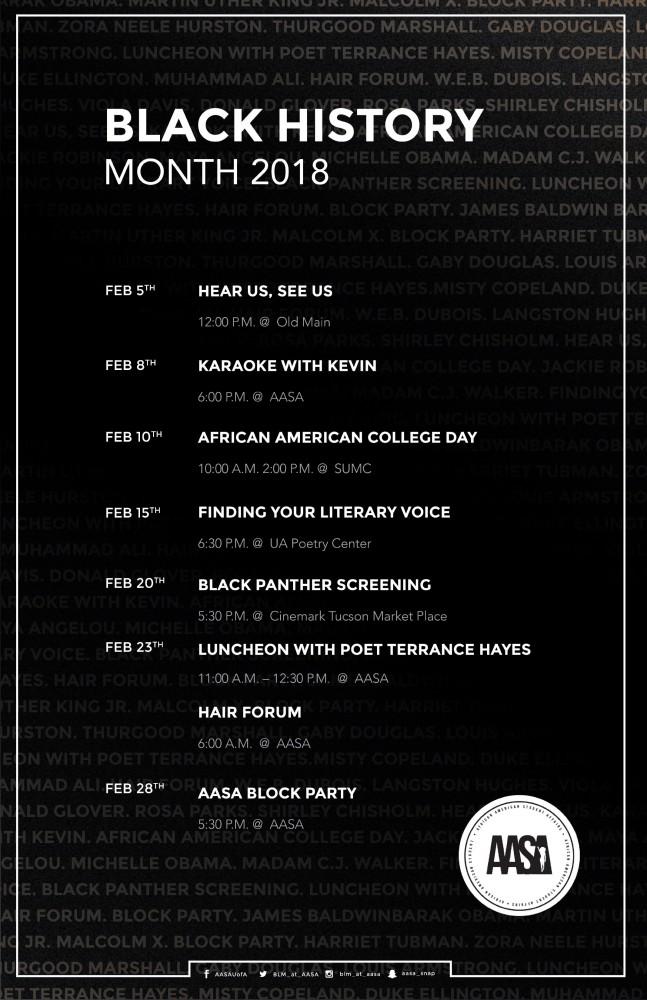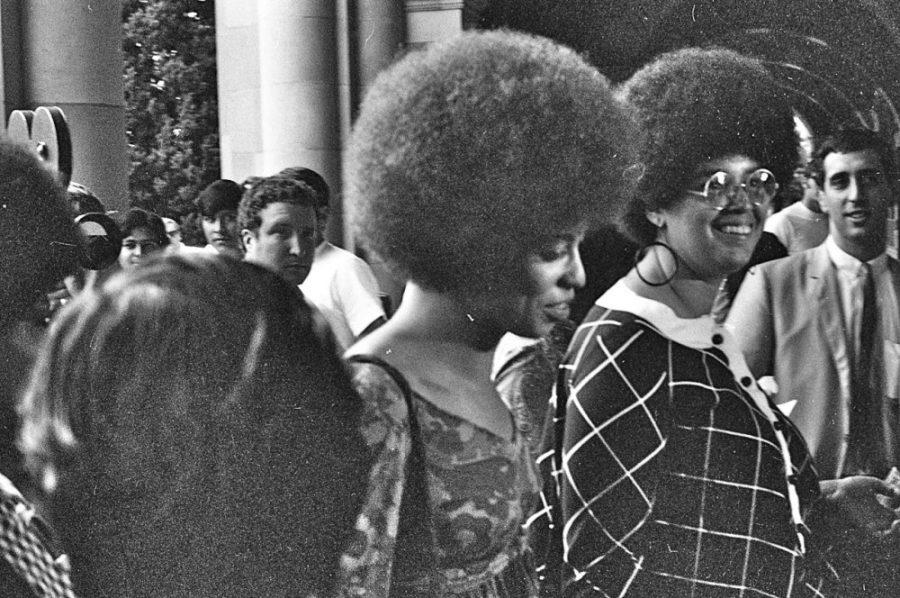Every February, we are reminded to acknowledge the struggles that African-Americans and other black people around the world have experienced. This act of remembering is important for many reasons.
“Remembering is resistance,” writes Rae Paris in her book “The Forgetting Tree: A Rememory.” This seemingly simple act, when those in power try to suppress these stories, is a powerful form of declaring that one’s voice matters and deserves to be heard.
Here at the University of Arizona, several groups and colleges are planning events to commemorate the struggles and triumphs people of color have gone through. The importance of attending these events and learning from these communities cannot be overstated, especially for those that occupy traditional positions of privilege, most notably white men.
When partaking in these events of remembrance and strength, it is vital to come from a place of respect, listening and understanding.
RELATED: UA named best in state for LGBTQ students, but work remains to be done
Some things that are said may challenge your way of thinking. You may even feel attacked or offended by how experiences are interpreted by those outside of your mindset. But these are not the times, or places, to have these conversations about those that have already had their stories told by society for time immemorial.
Instead, we must open our hearts and minds to these events and learn about the impacts these moments have on others. The whitewashing and romanticizing of history should be confronted and critiqued in order to grow beyond these past injustices.
If we choose to instead cast a blind eye to the crimes perpetrated by past governments, companies and individuals, we will never be able to grow and come together as a people. The divisions that make nearly all conversations fraught with anxiety will only continue to fester and expand.
Black History Month, or any other time when we offer special acknowledgement to a marginalized group, is not meant to divide us. It is an opportunity to learn from the experiences of others and understand our role in dealing with these difficult issues.
The onus lies with those that occupy these positions of inherited privilege, whether it is skin color or socioeconomic status, to recognize these positions and work to make things equal for everyone, regardless of ethnicity, nationality, sexual orientation or identity.
The UA must continue to work to diversify the administration and professors on campus, and start bringing more inclusive voices into its classrooms and offices.
Only when those in positions of power and authority recognize these structures and the ways they marginalize certain individuals and groups can society work to correct these issues.
The first step is expanding our understanding of these groups and the problems they face, both historically and now, and continue tearing down these walls that separate us.
Black history month events on campus
From UA College of Humanities
“Author, attorney, motivational speaker and business executive Daisy M. Jenkins will deliver a talk on Feb. 8 called ‘The Green Machine: Inside the Prison Walls,’ about the crisis of mass incarceration in America. The talk, including a discussion with students, will be from 2-4 p.m. in Biological Sciences East, Room 100.
The Africana Studies Program is a co-sponsor of the Barbea Williams Performing Company celebration “Our Blackness, Our Heritage” on Sunday, Feb. 11, from 3-6 p.m. at the Dunbar African American Culture Center, 325 W. Second St. The program includes a step show with contemporary and traditional dance, spoken word, food and vendors. Admission is $6 or a donation of shoes and/or clothing to support the African American Student Services.
• The Africana Studies Program will also host an open house on Tuesday, Feb. 20 in the Student Union Memorial Center Ballroom South, for students to meet professors and learn more about the courses, majors and minors offered in Africana Studies.
• In a partnership with KXCI Community Radio, Africana Studies faculty members will appear on the station each Monday throughout February, discussing particular topics in black history and selecting a related set of songs.
• On Saturday, Feb. 24, the College of Humanities and Africana Studies Program will sponsor the 2018 Tucson Hip Hop Festival at 191 Toole, with faculty members joining panels to discuss hip-hop culture and history. The day-long festival features demonstrations, workshops and discussions, as well as more than 60 performers. The 2017 inaugural event drew more than 1,200 attendees.”
From African American Student Affairs

Andrew Paxton believes voices that have been silenced for too long must be heard. Follow him on Twitter.









